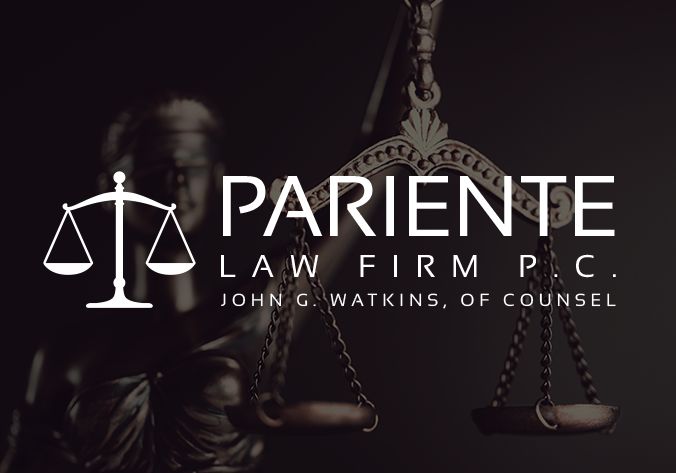The crime of embezzlement is often referred to very simply as theft, which it is, but it’s more accurately a form of financial fraud. Embezzlement is legally considered to be a much more serious form of crime and is almost always more complicated than the kind of act we would generally classify as theft. The personal stakes for beating an embezzlement charge are high due to the negative consequences of being convicted. An embezzlement conviction can follow you for the rest of your life and become something of a roadblock in your future. With the assistance of an attorney who is well versed in the way Nevada handles crimes of embezzlement, it can sometimes be possible to have the charges lowered or dismissed altogether.
The Difference Between Theft and Embezzlement
 A concise description of the legal definition of theft (also referred to as larceny) in Nevada describes it as taking control over someone else’s property or money with the intention of depriving them of it. This may sound similar to what many people believe embezzlement is, but there is a very important legal distinction between the two.
A concise description of the legal definition of theft (also referred to as larceny) in Nevada describes it as taking control over someone else’s property or money with the intention of depriving them of it. This may sound similar to what many people believe embezzlement is, but there is a very important legal distinction between the two.
Embezzlement can only occur when someone is legally and willingly given access or control of the property or money of someone else with the trust that they will manage it as directed or in the best interest of the actual owner. The crime occurs when the person placed in charge of the property/funds then secretly removes or holds back portions of the whole for their own personal profit, intentionally obscuring their actions from the property owner.
Acts of embezzlement can occur as one-time events, with a large amount of property taken at once, but they are most often found to happen in small enough amounts they are easy to miss or overlook. Nevada actually doesn’t consider a theft of this nature to be categorized as an embezzlement unless the sum of the alleged amount taken reaches over $250. Examples of this crime can range from simple measures to sophisticated and methodical schemes, requiring a considerable amount of patience, forethought, and caution to set up. Sometimes embezzlement is so skillful in execution that the missing property can go undetected by the rightful owner of the funds for years.
Getting Ahead of Possible Embezzlement Charges
If you have not yet been formally charged with an alleged act of embezzlement, but have reason to believe that you might be soon, you should hire an attorney – the sooner, the better. By acting quickly, you have a much better chance of coming to an arrangement that will clear your name before ever having your case go to trial, leaving your criminal record clear of such a damaging charge.
Defending an Embezzlement Charge
In order for a charge of embezzlement to reach the conviction stage, it will be necessary for the prosecution to prove beyond any reasonable doubt that the defendant wholly intended to defraud the rightful owner of the property in question. This alone can be a difficult thing to prove with no question of doubt. There are also some unintentional or benign circumstances that can occur which may seem like embezzlement but lack all indications of someone behaving with a clearly fraudulent intention. You cannot be charged with embezzlement if your attorney can prove that there is any reason to doubt your intentions or that you truly believed you were making decisions in line with what you thought the owner expected of you.
Penalties for Convicted Embezzlement
 A conviction of embezzlement can be either a misdemeanor or a felony, depending on the overall value of the money or the type of property that has been misappropriated by the defendant. The penalties for embezzlement in the state of Nevada are very similar to the penalties of larceny, which also increase in severity the higher the worth of the embezzled property is.
A conviction of embezzlement can be either a misdemeanor or a felony, depending on the overall value of the money or the type of property that has been misappropriated by the defendant. The penalties for embezzlement in the state of Nevada are very similar to the penalties of larceny, which also increase in severity the higher the worth of the embezzled property is.
What is Restitution?
A component of any convicted embezzlement penalty is an order of restitution, which is the reimbursement of any funds that were embezzled to the victim. Restitution is separate from the punitive fines that will also be included in sentencing.
Misdemeanor Embezzlement
● Property Worth Less Than $650 – Embezzled property that is worth less than $650 is considered a misdemeanor in Nevada. The penalty for this is up to $1,000 in fines or up to a maximum of 6 months in jail and restitution of the embezzled amount.
● Repeated Acts of Embezzlement – In the state of Nevada, multiple acts of misdemeanor levels of embezzlement that occur from one victim over a six month period of time can be combined and added up. When this occurs, if the total worth adds up to more $650, the charge will be upgraded from a misdemeanor to a felony.
Felony Embezzlement
● For Property Worth $650-$3,500 – When embezzled property is worth over $650 but less than $3,500, the charge will be a category C felony in Nevada. The penalty for this is up to $5,000 in fines, between 1 to 5 years in a Nevada State Prison and restitution of the embezzled amount.
● For Property Worth More Than $3,500 – When embezzled funds or property surpass the worth of $3,500, it becomes a category B felony in Nevada. In this case, the penalty will be up to $10,000 in fines, plus restitution of the embezzled amount and from 1 to 10 years in prison.
An embezzlement conviction on your criminal record can cause you problems for the rest of your life – well beyond the completed serving of any sentence that you could receive for your crime. It will have an undoubtedly negative effect on basic but important things like looking for employment or applying for a financial loan. If you have been charged with embezzlement and are in need of a knowledgeable attorney to help you build your defense or better negotiate the charges you face, we encourage you to contact our offices for a free case evaluation as soon as possible.




